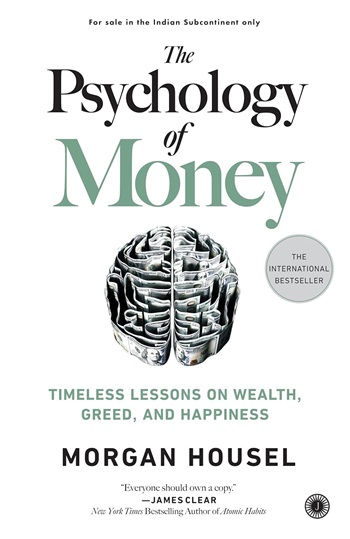The Psychology of Money by Morgan Housel offers interesting insights into the psychological aspects of financial decision-making by exploring the intricate relationship between human behaviour and financial decisions. Housel emphasises that financial success is not solely about technical knowledge, but is heavily influenced by human behaviour. Our emotions, biases, and personal experiences shape financial decisions, making behaviour management a crucial aspect of wealth-building.
The author highlights the importance of long-term thinking, patience, and the power of compounding, noting that small, consistent actions over time can lead to substantial wealth. He also stresses that wealth should be measured not just by material possessions, but by the freedom and security it provides.
In addition, the book addresses the role of luck in financial outcomes and the need for humility when assessing success or failure. It distinguishes between risk (where potential outcomes are known) and uncertainty (where they are not), and suggests that being aware of this distinction can guide us in making more informed financial choices.
However, Housel warns against biases arising from the Dunning-Kruger effect, where people with limited knowledge tend to overestimate their expertise, and those with expertise tend to underestimate theirs. Ultimately, he argues that satisfaction, rather than the relentless pursuit of more wealth, should be the goal of financial planning.
The book relies heavily on anecdotes and stories to illustrate its points. While this approach can make the content more relatable, it may lack the depth and rigour of a more research-based approach.
Overall, The Psychology of Money underscores the essential role of psychology in financial decisions. It encourages readers to cultivate a deeper understanding of their own behaviours and biases, promoting wiser financial choices and a more balanced approach to wealth and well-being.



